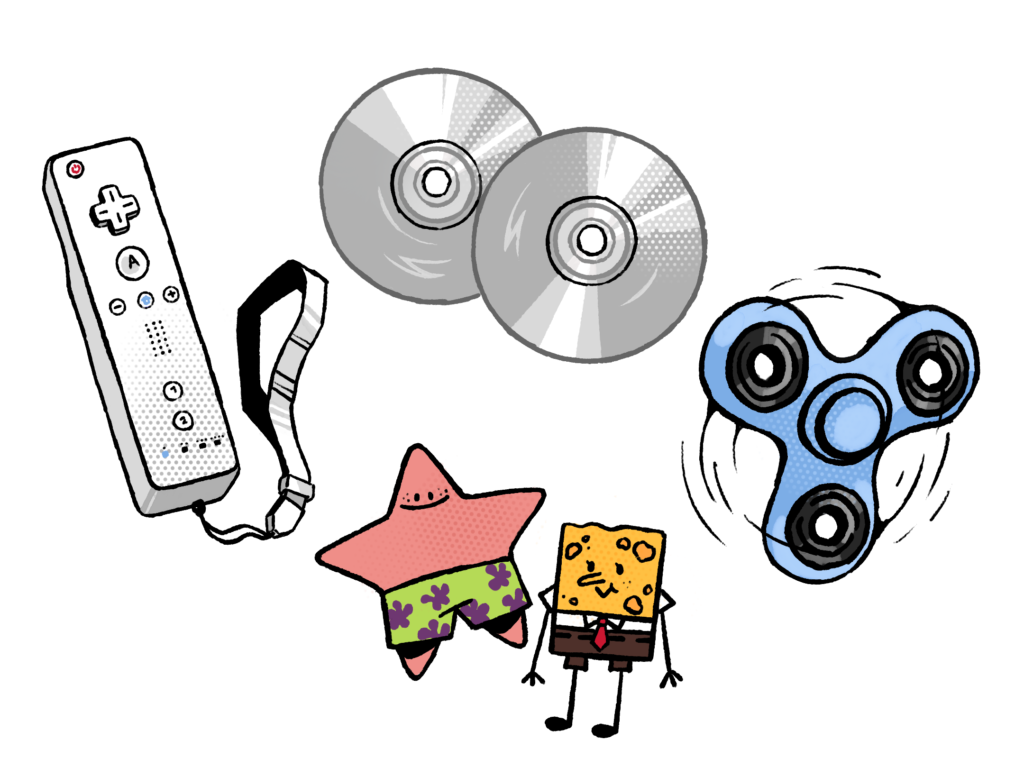
Winona Reif
For many students today, childhood nostalgia has become a powerful force, shaping friendships, perspectives and mental well-being. Younger generations, in particular, find themselves drawn to memories of the past, with surveys indicating that 15% of Gen Z and 14% of millennials prefer reflecting on their past rather than focusing solely on the future.
Nostalgia provides a comforting link to formative experiences, reminding individuals of familiar people, places and activities. For some students, through recalling shared experiences, nostalgic memories strengthen relationships.
“Friendship isn’t based on how much you see each other,” said sophomore Kurt Nguyen. “You’ll still be there for [your friends], even if you haven’t seen each other in a long time.”
Nostalgia also has a positive impact on mental health: memories are a valuable way to manage stress and focus on positive experiences.
“Visiting good memories can make you happy,” said freshman Rebecca Chen. “Thinking about happy things or memories can improve your mental health because then you wouldn’t worry about sad things. Instead, you’re reflecting on those good memories with people you love.”
Many students including Chen find that nostalgia brings a renewed sense of stability, helping them maintain a positive outlook.
Beyond relationships and mental health, nostalgia often plays a role in shaping routines. Many students are motivated to engage in rituals that honor their childhood, from family dinners to celebrating special occasions.
“Whenever we have time, we gather at the dining table, and my mom will prepare many Chinese dishes,” Chen said. “It’s a great way to build relationships with people you know and get to know people who you didn’t know before.”
Family traditions like these provide a valuable link to the past, helping students feel connected to loved ones and familiar routines. Through shared activities, nostalgia fosters a sense of belonging, which supports students’ emotional well-being and strengthens family connections.
Nostalgia can also offer a calming influence, particularly during times of stress. For students facing academic pressures, recalling happy childhood moments can provide relief.
“Your body just memorizes certain points in time when you’re … the happiest,” Young said. “It has helped distract me. If I really need to calm down, I do stuff that I used to do then.”
Memories from childhood TV shows influence aspects of students’ identities to this day, including an impact on personality.
“I grew up with [Doraemon],” Chen said. “It taught me about the bonds between families… how they’re supposed to be more than just teachers and students but also friends who enjoy each other’s company.”
Others reflect similar sentiments, with what they learned from childhood shows still impacting their current lives.
“[Wild Kratts] was my favorite show growing up,” Young said. “It taught me a lot about animals and nature. I remember being fascinated by the different creatures and their unique abilities.”
For others, childhood TV shows are closely tied to family.
“Every Christmas, there was this Wild Kratts special,” Nguyen said. “My brother, older sister and I would wake up super early and watch it together before school. It just became our thing for a few years.”
At the same time, nostalgia encourages students to appreciate the present: a reminder to make new memories while also honoring the past.
“It’s just nice to look back on,” Nguyen said. “But I like where I’m at right now; the present is the best time. You’re bound to make more memories in the present, and everything’s temporary … Live in the moment, because it won’t last forever.”
However, Young believes nostalgia also has downsides.
“It can make you compare the past with the present in an unhealthy way,” Young said.
From childhood TV shows to familiar memories, nostalgia may offer students a meaningful bridge between past joys and present experiences. While nostalgia has the potential to prevent one from experiencing the present to the fullest, students’ past memories bring happiness and shape who they are today.





